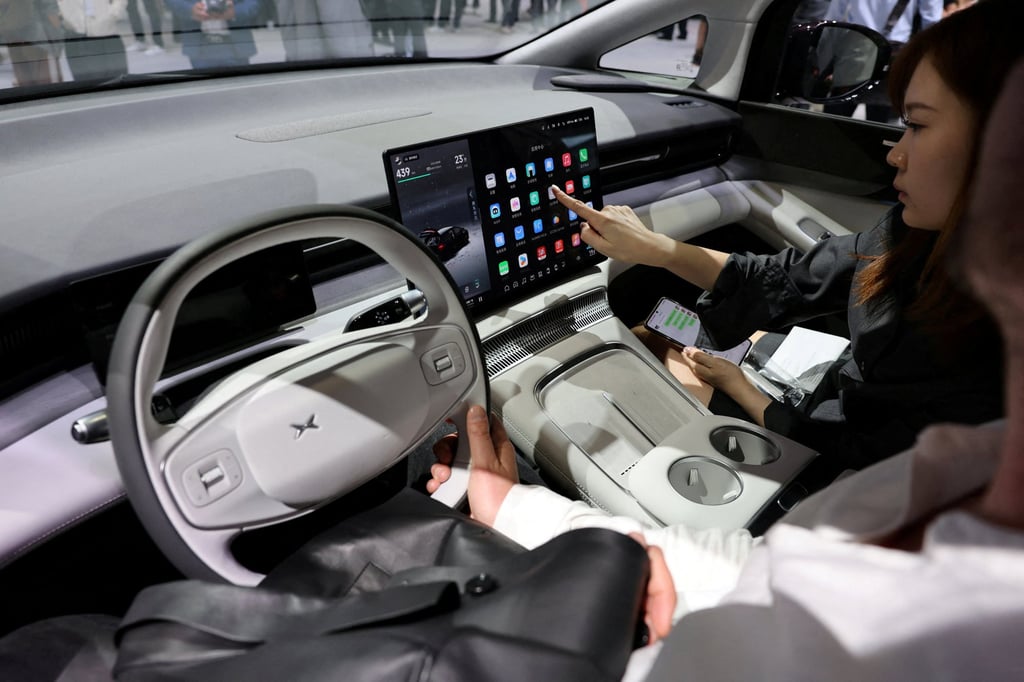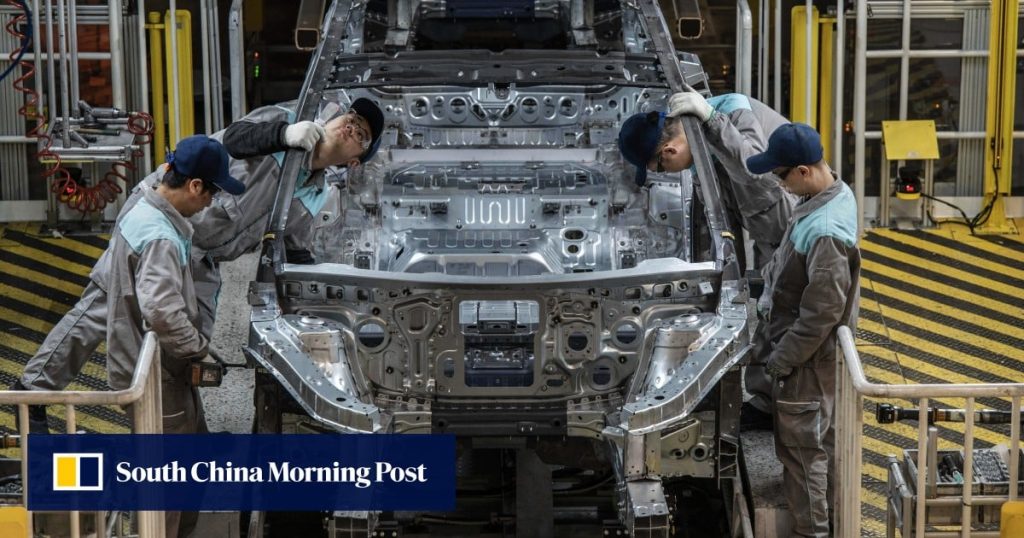Chinese makers of smart electric vehicles (EV) will have to redouble their efforts over the next few quarters to stay on track to break even as the brutal discount war in the world’s largest vehicle market shows few signs of abating.
From Nio to Xpeng and Zeekr, China’s EV start-ups have been reporting smaller losses in the second quarter, as discounts helped to encourage more buyers to ditch their oil-guzzling vehicles for battery-driven cars.
Nio’s second-quarter loss narrowed by 26 per cent from the previous three months to 4.99 billion yuan (US$699 million). Xpeng’s loss shrank by two-thirds to 480 million yuan in the same period, while Geely Automobile Holdings’ Zeekr unit improved on its loss, narrowing it by 88 per cent to 287 million yuan in the quarter that ended in June.
“The [publicly] listed EV makers have to cut their losses [because] it is difficult to raise fresh funds from investors” amid persistent concerns about overcapacity, said Ding Haifeng, a consultant at the financial advisory firm Integrity, in Shanghai. “Heavy losses over the coming quarters would threaten some Chinese EV builders, making them likely to be expelled from the highly competitive market.”

To survive the brutal competition and stay on its target to break even by the fourth quarter, Nio’s CEO William Li needs his 10-year-old company to deliver 50,000 EVs every month to customers, double what the Shanghai-based carmaker sold in the second quarter.
“We are aiming to deliver 50,000 cars each month in the fourth quarter,” Li said during a post-earnings briefing on Tuesday. “This will be a goal that our company is determined to achieve.”


